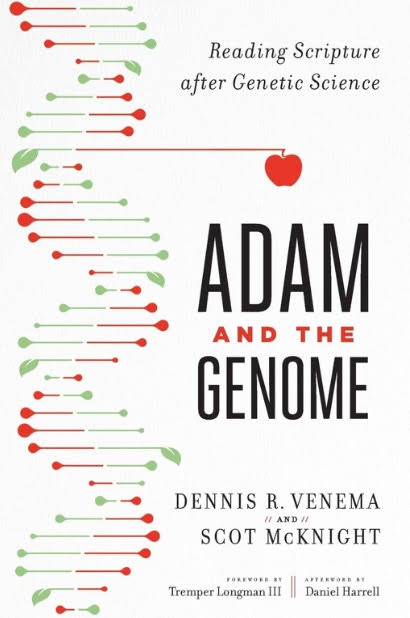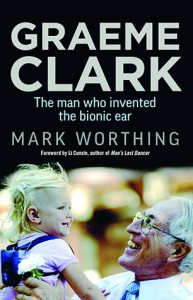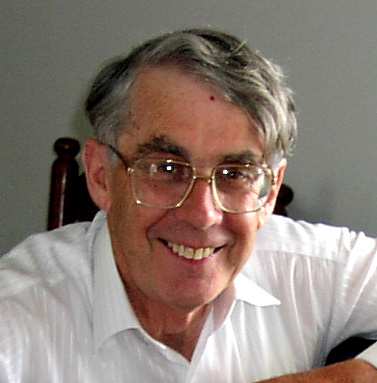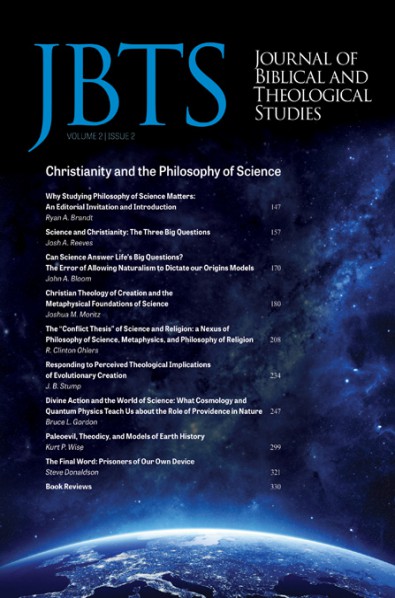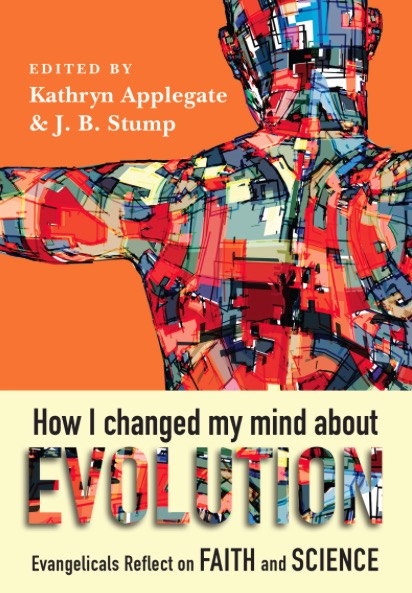


 Review of Sir John Houghton’s book ‘In the Eye of the Storm’
Review of Sir John Houghton’s book ‘In the Eye of the Storm’
John Pilbrow, August 2014.
 Download PDF
Download PDF
CHRISTIAN PERSPECTIVES ON SCIENCE AND TECHNOLOGY ISCAST Online Journal 2014 Vol. 10
Sir John Houghton (with Gill Tavner)
In the eye of the storm
Lion, Oxford, 2013, 303 pp.
ISBN 978 0 7459 5584 1
Reviewed by John Pilbrow
This review first appeared in the August 2014 issue of The Melbourne Anglican (p. 25) and is reproduced with permission.
___________________________________________________________
Whether you accept that climate change and global warming are real or remain sceptical, here is a book by a world authority (and professing Christian), that leaves no room for complacency. The author, Sir John Houghton, is an eminent atmospheric scientist who played a major role in putting Global Warming onto the world’s agenda and in helping establish the International Panel on Climate Change (IPCC).
Houghton traces his path from academic scientist (and Oxford professor), whose own research has contributed much to our understanding of global warming and climate change, to the public figure who served as CEO of the British Met. Office. The science of global warming and climate change is explained simply for the general reader.
Amongst many honours, Houghton received the 2006 Japan Prize ‘for contributions to atmospheric science and global warming’. In 2007, he accepted the 2007 Nobel Peace Prize on behalf of the IPCC.
Brought up as an evangelical Christian by devout Christian parents, Houghton has remained a committed Christian throughout his life. He believes that science and Christianity complement each other. Thus science is worth pursuing as a God-given activity, and we should welcome the truth wherever we find it. In particular, he sees care for the environment as an inescapable Christian responsibility.
Houghton’s research career has encompassed measurements of ozone concentrations in the troposphere (for his doctorate) to ground-breaking measurement of CO2 levels in the atmosphere using miniaturised equipment attached initially to balloons and later to NASA satellites.
Sir John moved into scientific management in 1979 on becoming CEO of the Rutherford Appleton Laboratories, where he developed management and administration skills for raising morale and valuing peoples’ expertise. This proved invaluable later as CEO of the British Met. Office (1983–91) where he forestalled attempts by those under him – the ‘Sir Humphreys’!! – to make him merely a figurehead. He chaired the UK Standing Royal Commission on Environmental Pollution, which reported on Public & Private Transport in 1994.
Gradually it began to dawn on Houghton and others that there was a growing body of scientific evidence that pointed to human-related CO2 emissions as a major driver of this [climate] change.
Following the establishment of the International Panel on Climate Change, Sir John served as co-chair of its assessment panel and lead author of IPCC reports from 1988–2002.
Houghton’s research has yielded two specialist texts, Infrared Physics (co-authored with SD Smith, OUP 1966) and Physics of Atmospheres (3rd edition, CUP 2009). He also wrote Global Warming, the complete briefing (3rd edition, CUP, 2004), at a more popular level where a whole chapter is devoted to his reflection on the issues as a Christian.
Sir John has also written two very helpful books at the science-faith interface, Does God play dice? (IVP 1988) and The search for God; can science help? (Lion, 1995), the latter based on his 1992 Templeton Lectures at Oxford.
No stranger to controversy, Sir John has faced opposition from British cabinet ministers, right wing politicians in the US, and hostility from some fundamentalist Christians, particularly in the southern US states – who deny that humans have had anything to do with climate change. Chapter 16 deals with opposition to International Panel on Climate Change reports, particularly from the oil industry. Much of the invective was directed at Sir John himself.
In 2009, UK journalist Christopher Booker began his book, The real global warming disaster with the words, ‘Unless we announce disasters, no one will listen’, attributing the quotation to the 1994 edition of Houghton’s, Global warming, the complete briefing. This has since been reproduced by many sceptics, including Lord Christopher Monckton and, though not mentioned in In the eye of the storm, this misquotation also appeared in a piece by Piers Akerman in The Daily Telegraph in Sydney back in November 2006. The correct quotation reads, ‘If we want a good environmental policy in the future we’ll have to have a disaster. It’s like safety on public transport. The only way humans will act is if there’s been an accident.’
Houghton has demonstrated rare wisdom in showing how to function successfully within public and political spheres with integrity. He avoided being ‘house-trained’ by the Sir Humphreys! He has sat before rulers and been given the words to say.
His voice needs to be heard in the churches, particularly where climate change is denied. Christian climate change skeptics need to know that the story of global warming owes much to this unassuming Christian and scientific statesman.
The book ends with an important message for Christians. See the summary challenges below.
This is a book our politicians also should read.
Summary Challenges, Appendix 4, p. 286
- The world is facing environmental crises of unparalleled magnitude, including some on a global scale.
- Looking after the earth is a God-given responsibility. Not to look after the earth is a sin.
- Christians need to re-emphasize that the doctrines of creation, incarnation, and resurrection belong together. The spiritual is not to be seen as separate from the material. A thoroughgoing theology of the environment needs to be developed.
- Our stewardship of the earth, as Christians, is to be pursued in dependence on and partnership with God.
- The application of science and technology is an important component of stewardship. Humility is an essential ingredient in the pursuit and application of science and technology — and in the exercise of stewardship.
- All of this provides an enormous opportunity for the church, which has too much ignored the earth and the environment and neglected the importance of creation and its place in the overall Christian message.
John Pilbrow is Emeritus Professor of Physics at Monash University and a Fellow of ISCAST.
